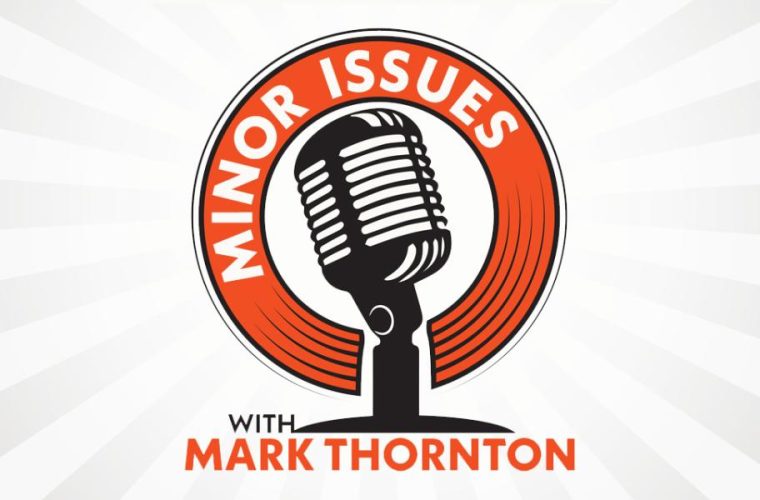
Spending More Taxpayer Money on Foreign Policy Boondoggles Has Solved Nothing
Whether you’re a conservative or libertarian, the notion of government shutdowns is no longer an alien concept considering that Washington managed to add a whopping $1 trillion to the gross national debt in a matter of three months—a large percentage coming from interest expenses alone. Another record for our national debt has been broken again, with $275 billion added onto the national debt in a single day.
How we solve this issue is a question that will remain unanswered. After all, the good old reliable Grand Old Party has no quarrel with throwing more taxpayer money at whatever problem they may perceive to exist. If the takeaway lesson for right-wing populists is that the government is spending the money on the “wrong causes”—combined with the Democrats’ view of spending—expect a default to happen sooner or later. When former Speaker Kevin McCarthy prevented an omnibus spending bill that included more funding for Ukraine from moving forward, the antiwar Right was skeptical. Given that McCarthy’s foreign policy man was Michael McCaul and McCarthy’s own record before being ousted, why wouldn’t the antiwar Right have such a response?
Nevertheless, the liberal-progressive interventionists had a meltdown. Even though the matter of Ukraine is a source of difference between the two sides, where America must stand together is their objection to McCarthy. With tensions between the United States and the autocratic “bloc” of Russia and China dramatically rising, McCarthy failed to lead the Republicans into an agreement with the Democrats on foreign policy and spending.
If you don’t have several minutes to read those articles, here’s a breakdown. In the face of greater competition with Beijing and Moscow, the liberal-progressive interventionists believed that McCarthy was merely pandering to the “isolationist MAGA” wing of the Republican Party. This pandering was at the expense of keeping the government functional by preventing “inefficient spending” through an actual “strategically” designed budget that alleviates problems like the current migrant crisis at the southern border of the US. Likewise, according to these interventionists, more money ought to be devoted to solving climate change, alleviating poverty in the Global South, making further commitments to the world, and saving face from the PR disaster of not being able to resolve a basic legislative process.
However, if “strategically” means giving funds to regimes with massive corruption—be it to counter the influx of migrants passing through the southern border of the US or to reverse climate change—then “strategically” means “inefficiently.” When China criticized Japan for dumping treated nuclear wastewater into the Pacific Ocean, did Beijing account for the fact that it itself dumps nuclear wastewater as well? Beijing didn’t care. The same applies to their extremely vague commitment to reducing carbon dioxide emissions. Likewise, DC has already given billions to Central America, but the ultraliberal New York Times documented that when the aid was sent, the majority of it disappeared without a trace and didn’t alleviate the migrant crisis.
The problem applies elsewhere as well. As Biden and the broader Beltway mount a new “supercharged” foreign policy toward Africa, African regimes are asking for $650 billion worth of funding for combating climate change and helping with debt relief from the Western-backed International Monetary Fund. These were the same countries that took in $170 billion worth of Chinese loans, combined with prior Western-backed foreign aid, and now they’re demanding more American taxpayer money even though they can’t pay any of that money back. Collectively, Africa has received $1.2 trillion worth of aid, according to one estimate. Beijing had to either extend loan maturities or erase large amounts of Africa’s debt, and Africa’s still as poor as ever.
In the same way, the overall goal of increasing American influence in order to contain China throughout the world through funding these African nations is unrealistic and ignores why these same countries choose to be nonaligned. They do not want to side with either the US or China overtly so that they can maximize investments out of both countries. At the same time, nonaligned countries typically carry ideological baggage inherited from socialism, hindering their growth. Taxpayers are paying for projects that are likely to fail with no guarantees that the money will ever be returned since African regimes seem to treat foreign loans as grants. Since 2016, Chinese lending to Africa has declined and been overtaken by Western-led institutions. However, every penny (extracted from taxes) counts, so why would they not trade with China as well?
At the same time, and ironically, American involvement does not help the Indo-Pacific to counter China’s imperialist behavior in the region. Instead, American involvement incentivizes the countries in this region to let Americans do their bidding in their defense (including in the South China Sea) while China’s influence expands throughout the region through the Belt and Road Initiative. If there’s one good thing that came out of the Republican infighting over neoconservatism and restraint, it’s that those countries have to take their defense back into their own hands. The reason why Japan doubled its defense spending with great approval is because an encirclement of Taiwan would forcibly turn Japan into almost a vassal of Beijing, and a defense guarantee from DC might be on the chopping board. Similarly, an invasion of Taiwan is near impossible thanks to the unforgiving weather and terrain, a nigh-impenetrable defense, and the possibility of Japanese intervention.
Why should we care about the rhetoric of others about the American system anyway? Despite being the main geopolitical rival of the US, China’s economic performance will never be able to catch up with America. Other than the repression in Xinjiang and Tibet, the reason why American intellectuals praise China’s model is that—long before the ongoing rivalry between the two—many of them liked China’s authoritarianism by clinging to the myth that it made China wealthy and better able to solve social problems. America is far more productive than China, with a per capita gross domestic product of around $70,000 compared to the official number of $12,000 for China, and then Chinese premier Li Keqiang admitted that 40 percent of China’s population lived on under $141 a month. Given that China is seen as a model for many Third World countries, we certainly could care less about these countries.
Finally, a word about domestic policy, given that the American government can’t have enough of the environmental, social, and governance framework. Take, for instance, “green infrastructure” like charging stations for electric vehicles or California’s goal to get off fossil fuels entirely—each has been a disaster. Fuel prices are rising again, and Joe Biden will only exacerbate these prices further by banning fracking despite begging the Saudis to increase oil production. Now there’s also talk about regulating artificial intelligence (AI). Considering that Russiagate has been debunked, why should we even want to regulate AI?
The only conclusion I can reach is that handing more taxpayer money out to Third World countries as well as increasing commitment on the global stage are all feel-good proposals but in-vain measures. Elsewhere with the progressive narrative, I can assure you that it is permissible to hold onto the fact that Moscow is run by a brutal despot, but the reality that DC kickstarted the events that led to the current invasion of Ukraine can’t be hidden. Likewise, the blame can’t be shoved onto “extremism” when the policies of the progressive camp are a failure and a waste of taxpayer money.
The world today does not exist in blocs, no matter how ideologically similar nations may be. China is already paying the price of its retreat from partial liberalization, while Russia has to contend with central Asia trying to move away from its sphere of influence, which has been happening for a while now. America does not need to be the world’s policeman or a country-sized reincarnation of St. Francis of Assisi.



